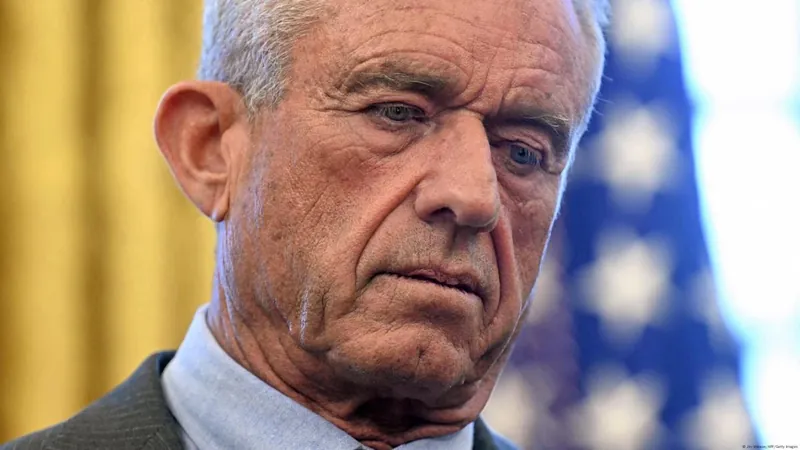
RFK Jr.'s Controversial Bird Flu Strategy Raises Eyebrows
2025-03-26
Author: Wei
In a startling move that has sparked intense debate and concern, U.S. Health Secretary Robert F. Kennedy Jr. has proposed a controversial strategy regarding the ongoing bird flu outbreak in the country, suggesting that allowing the virus to spread among poultry could be beneficial. This plan, supported by Agriculture Secretary Brooke Rollins, signals a shift in approach at a time when bird flu has already begun wreaking havoc across the United States since its detection in late 2023.
Kennedy's remarks on Fox News indicate a willingness to rethink traditional management of avian influenza. "Most of our scientists are against the culling operation," he stated on March 11, proposing that surviving birds may possess genetic traits for natural immunity, similar to wild populations of birds such as mallards. The idea follows studies indicating that these wild birds are less affected by the virus, acting primarily as carriers.
The current outbreak is primarily caused by the H5N1 strain of avian influenza, with severe implications for agriculture and public health. Since its emergence, over 168 million domestic and wild birds have been infected. Alarmingly, recent developments have seen the emergence of H7N9, another deadly avian virus, marking the first outbreak of its kind since 2017. Experts fear that the continuation of H5N1 without intervention may lead to mutations that could escalate the threat to human health.
Critics, including former Kansas state veterinarian Gail Hansen, argue that allowing the virus to circulate freely among flocks like Kennedy suggests could increase the risk of new mutations, heightening the danger for both poultry and humans. T. Jacob John, a respected medical virologist, emphasized that the primary objective of medical science is to reduce morbidity and mortality. He cautions that failing to manage the outbreak through culling could lead to widespread industry collapse if case-fatality rates rise.
Public health experts are increasingly concerned that the consequences of uncontained bird flu could spiral out of control. With most cases in humans arising among agricultural workers who handle infected birds, the potential for wider transmission remains a grave concern.
Kennedy's approach raises echoes of the strategies debated during the COVID-19 pandemic, where various governments weighed the merits of herd immunity against lockdowns. Health sociologist Theo Bourgeron drew parallels between the current bird flu strategy and earlier pandemic responses, noting that dispensing with containment measures could lead to dire repercussions, including the potential creation of new pandemics.
Critics of the proposed strategy suggest that it reflects a reactionary stance characterized by a distrust of government authority, especially after claims of "overreach" during COVID-19. Johan Norberg of the Cato Institute posits that the new administration may be leaning towards more libertarian principles that prioritize personal freedom over protective health measures.
As the debate around this controversial plan continues, the agricultural and public health landscapes in the U.S. may be on the brink of significant change, with critical implications for the fight against avian influenza and its potential spillover to humans. Would you trust a policy that puts bird welfare and human health in the balance? The stakes have never been higher.




 Brasil (PT)
Brasil (PT)
 Canada (EN)
Canada (EN)
 Chile (ES)
Chile (ES)
 Česko (CS)
Česko (CS)
 대한민국 (KO)
대한민국 (KO)
 España (ES)
España (ES)
 France (FR)
France (FR)
 Hong Kong (EN)
Hong Kong (EN)
 Italia (IT)
Italia (IT)
 日本 (JA)
日本 (JA)
 Magyarország (HU)
Magyarország (HU)
 Norge (NO)
Norge (NO)
 Polska (PL)
Polska (PL)
 Schweiz (DE)
Schweiz (DE)
 Singapore (EN)
Singapore (EN)
 Sverige (SV)
Sverige (SV)
 Suomi (FI)
Suomi (FI)
 Türkiye (TR)
Türkiye (TR)
 الإمارات العربية المتحدة (AR)
الإمارات العربية المتحدة (AR)